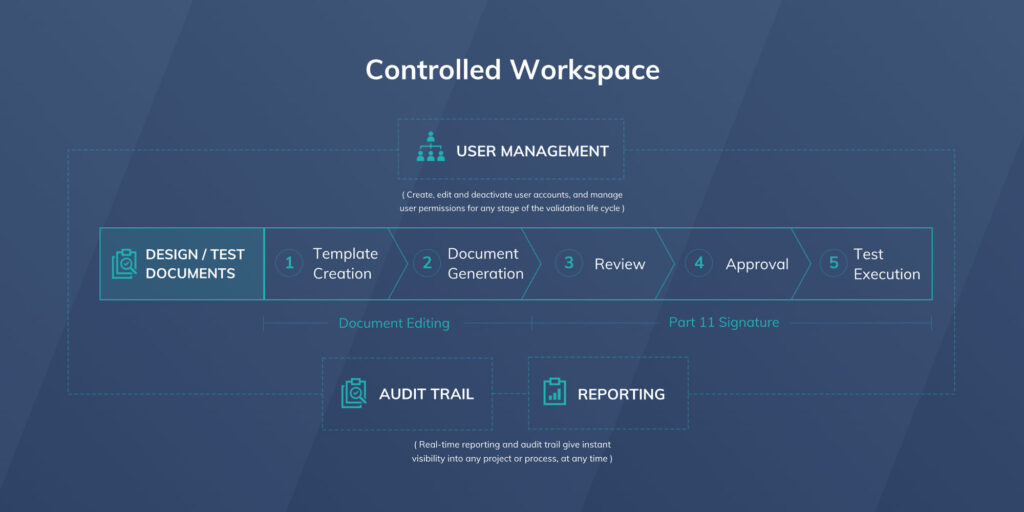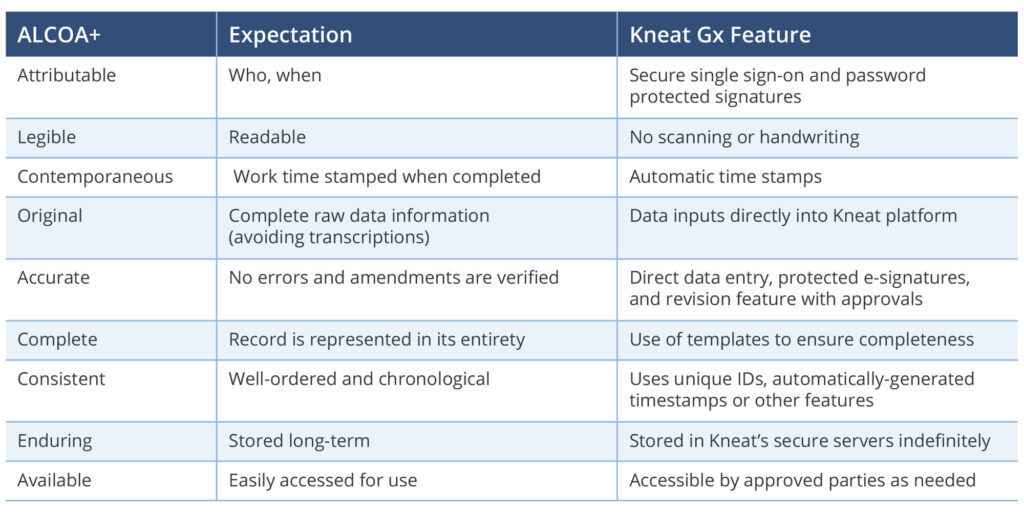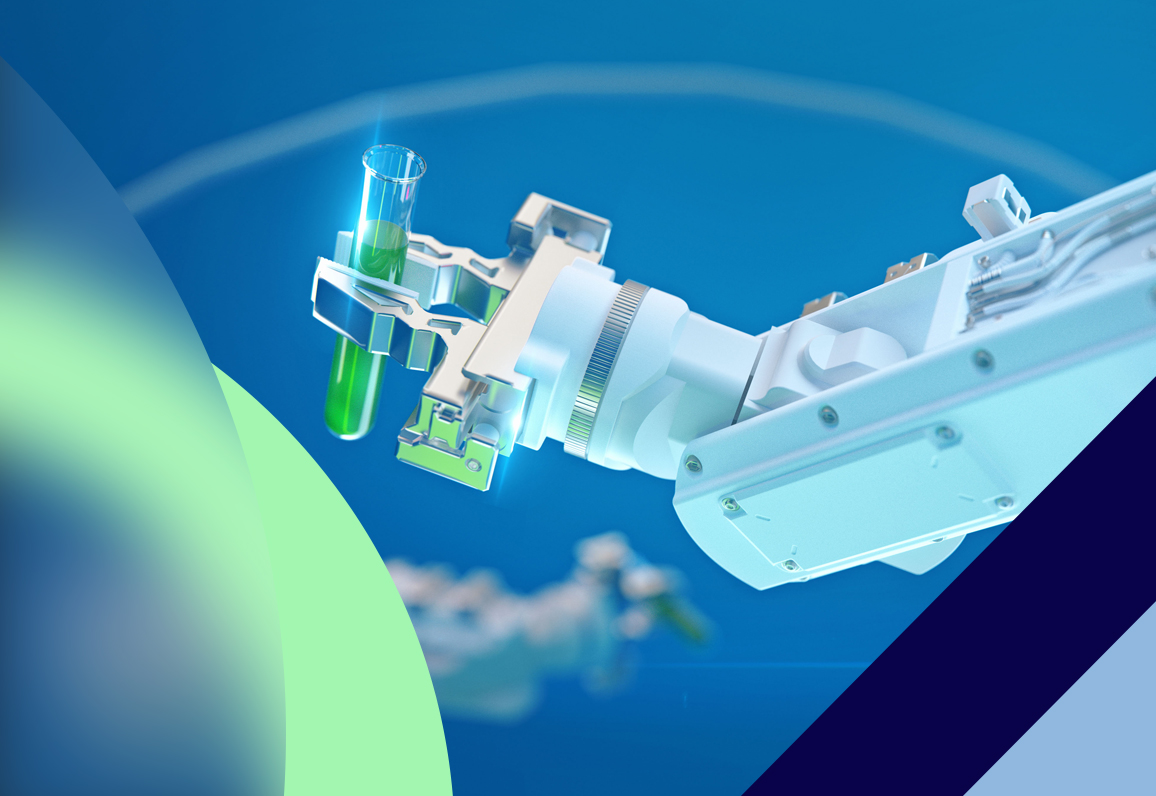As life sciences manufacturers continue to seek efficiencies in processes through computer systems, demand to install and maintain an array of increasingly complex computer systems and software grows, as does risk profile. The U.S. FDA’s 21 CFR Part 11 regulation—which determines the validation and compliance of electronic systems—helps companies by setting out broad definitions and rules, supported by extensive guidance.
In this article, we outline how Kneat helps you to reach compliance with the regulation while unlocking additional benefits for validation professionals, such as enhanced data integrity and smarter documentation collaboration and control.

21 CFR Part 11 Compliant Software
Compliance with FDA regulations is a market requirement for the life sciences industry. It is the responsibility of the organization itself to ensure that it follows 21 CFR Part 11. Failure to comply can be very expensive—and can lead to product recalls, significant reputational damage, and even criminal penalties.
21 CFR Part 11 compliant software includes GxP critical systems that meet the FDA’s requirements for the acceptance of electronic records and electronic signatures. These standards look to ensure that electronic records and signatures used in a company are equally, or arguably, more trustworthy and reliable as paper equivalents.
21 CFR Part 11, s.11.3 defines “electronic record” to mean; “any combination of text, graphics, data, audio, pictorial, or other information representation in digital form that is created, modified, maintained, archived, retrieved, or distributed by a computer system.”
It is important to note that this broad definition means that even companies using any partly paper-based validation processes must nevertheless comply with the regulation, if their current system involves scanning and uploading any document to a server. You can learn more about the regulation’s requirements, relevant sections, and descriptions our 21 CFR Part 11 Fact Sheet.
When digitizing validation records, it’s important to look beyond simply achieving compliance to select and apply systems that help you build a modern, data-centric approach to your validation program while offering broader value creation.
What are the Technical Features Needed for 21 CFR Part 11 System Compliance?
At a minimum, the technical features needed for system compliance with 21 CFR Part 11 are:
- Security and access levels
- Audit trails
- Electronic signatures/biometrics
- Control of sequence of events
- Data protection/integrity
Security and Access Levels
These are important to ensure that unauthorized people can’t access the system. And when accessing the system, the level of access within needs to be controlled as well. Security controls for user identification in Part 11 compliant systems must have password and security features that limit user access and their privileges.
Kneat’s User Administration area allows authorized administrators to create, edit, and deactivate role-based user accounts. All users, user permissions, and the creation of user groups to suit processes are managed in this area of Kneat, allowing you to assign and manage user permissions from one centrally controlled panel and assign user privileges as needed.
Audit Trails
When dealing with data, you want to know when the record was created, who created it, if it was modified, who modified it, when they modified it, and why they modified it. That information needs to be automatically handled by the electronic system itself.
Kneat automatically generates an independent detailed, un-editable audit trail in real time. You can see any user action, correction or change with a corresponding timestamp, and much more at the click of a mouse. You can filter and re-order any audit trail to pinpoint any desired information during audit.
Electronic Signatures / Biometric Devices
If you’re going to use electronic signatures, then the system must have electronic signature components (or biometric devices) which are used to identify the individuals using the systems. Kneat enables you to approve any documentation with 21 CFR Part 11 / Annex 11 compliant electronic signature.
Workflow: Controlling Sequence of Operations
The electronic system should be designed so that it controls, as far as possible, the operation of it. So, system users can’t do things out of sequence or skip steps that are critical.
Within Kneat’s controlled Workspace users can manage validation by site, process, or project. Here, users can generate documents, deviations/non-conformances execute test scripts, and send documents for review and approval.

Data Protection
The system must have the right kind of protection for the data itself. If you create a record, you need to make sure that it can’t be modified by unauthorized people. You need a backup copy/archive copy of that data, the ability to detect errors/external attacks, and if needed, encryption of data to protect it.
Kneat is a standalone ‘Software as a Service’ (SaaS) enterprise platform hosted in private, qualified, and highly secure Amazon Web Services (AWS) web servers, trusted by many of the world’s largest life sciences companies. Our robust SaaS infrastructure undergoes annual independent penetration tests, in addition to AWS’ own independent tests, periodic internal tests, and 24/7 security monitoring.
It is important to note that a business can’t have a compliant system just by having the technical features. All users must use it in a compliant way and be fully in control of all aspects of that system.
Our dedicated Kneat Gx software training organization, Kneat Academy, provides a suite of certified training programs for all users. Customer courses range from the entry level ‘End User’ program, through to moderate and advanced ‘Power User’ Level programs.
Learn More About Kneat Academy
Enhanced Data Integrity
The integrity of your data is fundamental. The Life Sciences industry generates a massive volume of complex data. As companies embrace automated systems and cloud storage solutions, the volume of data continues to grow. With this shift toward new technology comes greater scrutiny from global regulatory bodies, and a higher likelihood of enforcement action.
The FDA recommend that you take an ALCOA+ approach to verifying data. Kneat addresses data integrity requirements and enhances efficient comprehensive ALCOA compliance.

Smarter Document Collaboration and Control
The best 21 CFR Part 11 software helps organizations work more effectively by improving team communication on required validation, quality, and compliance documents.
Our cloud-based software Kneat Gx scales with company growth and new regulatory guidance, such as the FDA’s Computer Software Assurance (CSA) and enables your team to collaborate globally. Kneat is always live, up-to-date and ready to support thousands of simultaneous users. All approved users, both internal and external, can participate in your process in real time, from anywhere. Faster, smarter collaboration saves time and money while protecting quality and compliance.
Kneat includes automated notifications for document contributors, and the ability to leave in-line comments during document revisions. Our document control features meet FDA requirements for electronic records and signatures, while streamlining your validation workflow and driving wider efficiencies for your business—such as faster changeover times and accelerated speed to market.
Final Thoughts
The FDA’s 21 CFR Part 11’s contribution to compliance benefits all life sciences stakeholders—regulators, patients, consumers, and companies—in many ways.
Regulators are empowered to provide oversight and audit with confidence, because 21 CFR Part 11 ensures the inspect-ability of electronic records and that they are available for the prescribed retention period.
Patients benefit from faster innovations enabled by digitalization and faster data analysis, while consumer confidence is instilled and promoted through the preservation of data integrity.
Highly regulated companies are enabled to leverage technology safely allowing them to keep competitive and enable profitable growth. The required systems and processes result in better process control, transfer of information, data integrity, and fewer data-related errors.
Digital Validation Budgeting Guide
Validation software for your business should help you maintain continuous compliance with FDA cGMP and meet your other requirements for implementation speed, ease of use, and budget.
Our Digital Validation Budgeting Guide contains ten steps to help you successfully develop, manage, and acquire budget for digital validation projects. Learn what to look for when selecting a vendor, make more accurate cost calculations, and discover the best times to present business cases.




